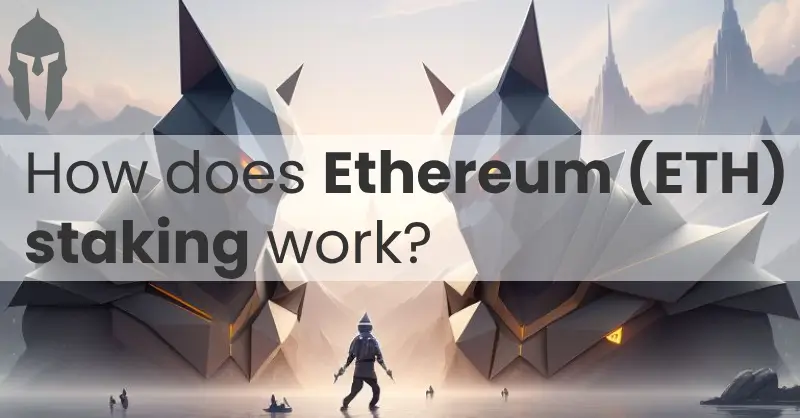
How does Ethereum (ETH) staking work?
April 29, 2024
Ethereum staking is the process of contributing to the security of the Ethereum network by locking up some of your Ethereum (ETH) tokens. Instead of delegating your tokens, as we know from other prominent Layer-1 networks like Cardano and Concordium, the user sends ETH directly to the beacon chain smart contract and lock up their ETH as proof for their contribution. Here's a breakdown of how it works:
Validation and Rewards:
Validators : People who stake ETH become validators for the network. They are responsible for verifying transactions and adding new blocks to the blockchain.
Random Selection : Validators are chosen randomly to perform these tasks.
Earnings : As a reward for their work, validators earn newly minted ETH and a portion of the network transaction fees.
Staking Requirements:
Minimum Stake : There's a minimum amount of ETH you need to stake to become a validator. Currently, this is set at 32 ETH per validator.
Staking Pools:
Individual Participation : For many users, the 32 ETH minimum can be a barrier to entry. To address this, there are staking pools.
Pool Participation : Staking pools allow users to contribute smaller amounts of ETH and collaborate to meet the minimum requirement.
Rewards Distribution : In a staking pool, rewards are distributed among participants based on their contribution. Myrmidon Staking allows users to run their own validator(s) by sending 32ETH to the beacon chain smart contract per validator. As a customer, you receive 100% of the protocol rewards your validator(s) earns and there is no hidden fee.
100% Non-custodial:
At Myrmidon Staking, we claim to be the most non-custodial service in the industry, but how can something be 100% non-custodial? Myrmidon Staking is the only staking provider that gives our customers the ability to back-up their validator credentials, which means, in case something happens to Myrmidon Staking, you as a customer can always gain access to your validator(s) and hereby secure your investment. You are the sole owner of the validator(s) you run, and as such, you should have full control in every aspect of the process of staking your ETH.
Overall, Ethereum staking allows users to earn rewards for contributing to the network's security. There are two main ways to participate: directly as a validator (32ETH per validator) or through a staking pool. Ready to start earning ETH? Go to our dashboard and start staking today.